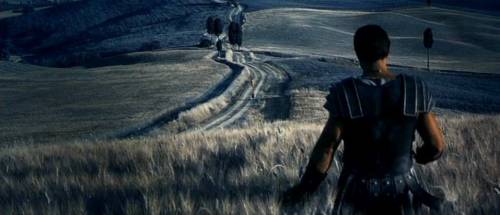Start by creating a PowerPoint with these pages. HERE
You have examples of our previous pupil work.
example-1
example-2
example-3
example-4
example-5
example-6
example-7


| How does this hero shot construct Maximus? |
 |
| The opening CU of Maximus running his hand through the corn: what kind of a man does he appear to be from the camerawork (CUs) and sound? |
 | |||||||||||||||||||||||
| How does the armour of general Maximus lend him authority, dignity and power? How does the Roman soldiers' armour make them appear compared to the barbarians? |
|
QI
|
Verbal humour important: ‘quite interesting’ facts more important to entertain than to get the right answer, QI has stated it follows its own philosophy, which is that everything in the world, even that which appears to be the most boring, is "quite interesting" if looked at in the right way; because of the show's expectation that hardly anyone would be able to give a correct answer without significant prompting, it instead encourages sheer interestingness, which is how points are mainly scored |
|
|
Answers designed to expose myths: things you always thought were true; laugh yourself clever |
|
|
Mainstream audience pleasures |
|
|
Regular panellists: Stephen Fry QI Master, ‘magic’; very clever chairman; |
|
|
Alan Davies comedian, familiar face, ‘the bloke next door’ rushes headlong like a puppy into the wall of ignorance." |
|
|
Variety of panellists The show's other panellists mainly come from a stand-up comedy background |
|
|
Banter between panellists |
|
|
Funny buzzers: Davies's buzzer is usually more humorous than the others |
|
|
panellists are apt to branch off into frivolous conversations, give voice to train of thought, and share humorous anecdotes from their own lives |
|
|
In some episodes, the panellists are given an extra task to complete during the course of the game. Those who do the best are often awarded extra points |
|
|
http://www.qi.com/tv/ |